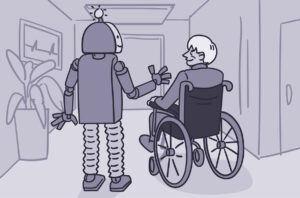Biology of Cancer
- Two major dysfunctions in the process of cancer development:
- Defective cell proliferation (growth)
- Stem cells
- Undifferentiated cells
- Ultimately differentiate and become mature, functioning cells of only that tissue
- All cells are controlled by an intracellular mechanism that determines proliferation
- Orderly process progressing from a state of immaturity to a state of maturity
- Stable and will not change
- Cancer cells grown in culture are characterized by loss of contact inhibition
- Grow on top of one another and on top of or between normal cells
- Cancer cells respond differently than normal cells to intracellular signals regulating equilibrium
- Divide indiscriminately and continuously
- Pyramid effect
- Divide indiscriminately and continuously
- Stem cells
- Defective cell differentiation
- Two types of genes that can be affected by mutation are
- Protooncogenes
- Regulate normal cellular processes such as promoting growth
- Genetic locks that keep cells functioning normally
- Mutations that alter their expression can activate them to function as oncogenes
- Tumor suppressor genes
- Suppress growth
- Function to regulate cell growth
- Prevent cells from going through the cell cycle
- Mutations make them inactive
- Result in loss of suppression of tumor growth
- Protooncogenes
- Two types of genes that can be affected by mutation are
- Defective cell proliferation (growth)




